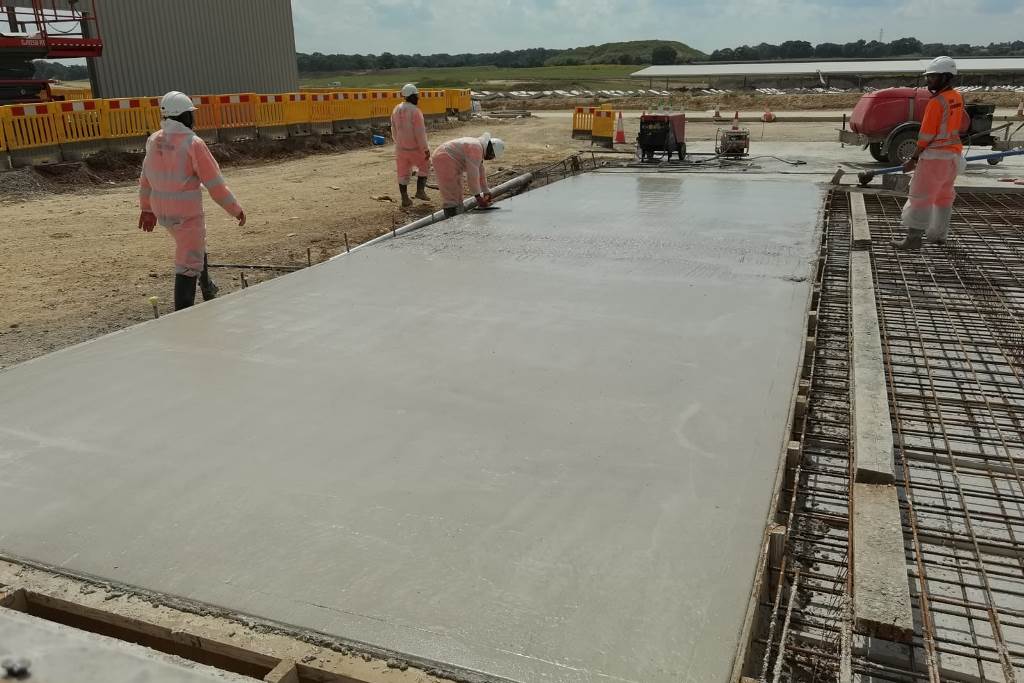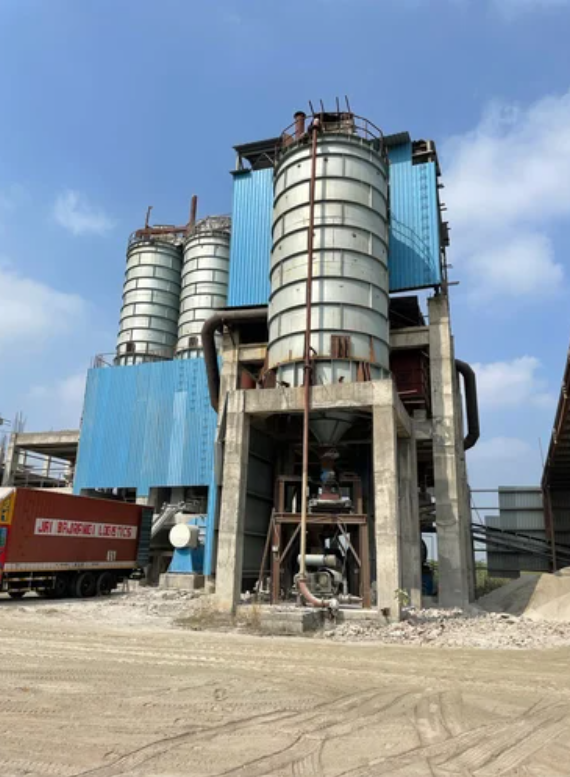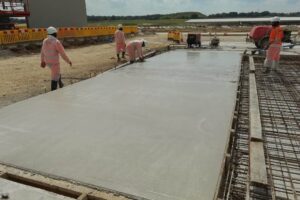



Ultrafine GGBS
Ultrafine Ground Granulated Blast Furnace Slag (GGBS) typically exhibits enhanced pozzolanic properties compared to coarser particles due to its smaller particle size and increased surface area. These properties contribute to its ability to react with calcium hydroxide in the presence of water, forming additional cementitious compounds that improve the strength, durability, and other performance characteristics of concrete.
The increased surface area of ultrafine GGBS allows for more efficient pozzolanic reactions, leading to better cementitious properties and a denser microstructure in concrete. This enhanced reactivity makes ultrafine GGBS particularly beneficial in applications where high strength, low permeability, and long-term durability are desired, such as in high-performance concrete mixes and construction projects exposed to harsh environments.
However, it’s important to note that the exact pozzolanic properties of ultrafine GGBS can vary depending on factors such as the specific composition of the slag, the grinding process used to produce the ultrafine particles, and the conditions under which it is incorporated into concrete mixes.
Ultrafine GGBS



Ground Granulated Blast Furnace Slag (GGBS) is a byproduct of iron production in blast furnaces and has chemical properties that make it suitable for use as a supplementary cementitious material. The chemical composition of GGBS typically includes significant proportions of silica (SiO2), alumina (Al2O3), and calcium oxide (CaO), along with smaller amounts of magnesium oxide (MgO), sulfur trioxide (SO3), and other elements. GGBS also contains compounds such as calcium aluminate silicates and calcium sulfide.
The specific chemical properties of GGBS can vary depending on factors such as the source of the raw materials, the manufacturing process, and post-processing treatments. However, its chemical composition generally contributes to its pozzolanic and hydraulic properties, which improve the durability, strength, and workability of concrete when used as a partial replacement for Portland cement.
Building a Better Future with Ultrafine GGBS
- Concrete production: Elevating concrete strength and durability with Ultrafine GGBS.
- Road construction: Enhancing road performance and longevity with Ultrafine GGBS.
- Structural fills: Building stability and sustainability with Ultrafine GGBS-enhanced fills.
- Soil stabilization: Strengthening soils and reducing environmental impact with Ultrafine GGBS.
- Waste stabilization and remediation: Mitigating environmental risks in waste management with Ultrafine GGBS.
- Agriculture: Enhancing soil quality and plant growth with Ultrafine GGBS soil amendments.
- Manufacturing of building materials: Improving building material durability and sustainability with Ultrafine GGBS.
Join the Conversation: Contact Us
- Phone Number : 9978579512
- Email ID : Info@terramineral.in
- Office Address : B 11 Ground, Shalin Square, Lal Gebi Cir, Vinzol, Hathijan, Ahmedabad, Gujarat 382445
